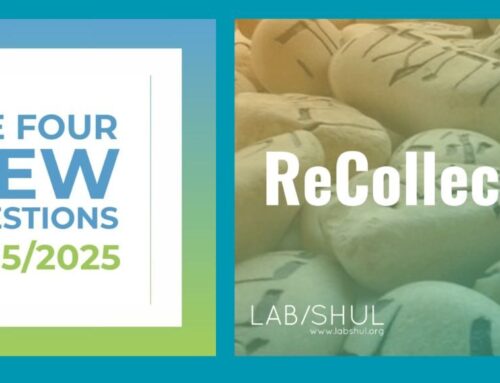As our country honors President’s Week, I am finding myself reflecting on some very vivid memories from my childhood and some questions I wish were prompted at the time. Honoring our leaders can often come with mixed feelings since individuals are complex, nuanced and complicated; especially when it comes to the challenging roles of leadership.
As a child, my elementary school auditorium had framed paintings on either side of the stage – one of George Washington, and one of Abraham Lincoln. In my recollection, they’re both wearing mostly black with some white. Washington had a ruffled white cravat, and Lincoln donned formal wear that looked more recognizable to me, and he also wore a noteworthy, tall hat. As an elementary school kid, I was taught that Lincoln and Washington were important leaders of this country who did good things. But of course, it’s more complicated than that.
As an adult, I know the reality is that both Washington and Lincoln were complicated people who, yes, did important things, and also were flawed people who enacted harm on others. The image that I had as a child was over-simplified and without context. My guess is that fellow students whose ancestors have different histories in this country might look at those hung portraits differently.
In this week’s Torah portion, Tetazveh, we learn about leadership. Aaron and his sons are temple priests and leaders of the community. In Tetzaveh, some of their responsibilities are outlined along with – what I found noteworthy – a super specific description of the ornate clothing they are meant to wear. A hem with embroidered pomegranates in blue, purple, and crimson yarns, plus lots of gold bells? Yes please!
It’s no accident that the outfits of Aaron and his sons are described in such detail. Dress is one of the ways we distinguish peoples’ roles – seeing someone in uniform might make you feel comfortable and confident about that person, and it also might cause a somatic reaction of fear or and anxiety. The way that people function as leaders is represented, at least in part, by the way they dress. The garb donned by Aaron and his sons, by Washington and Lincoln, by leaders in our contemporary times can be aspirational – and when combined with their actions, has the ability to inspire. Whether it inspires confidence, mistrust, or a combination of things, it is on us to explore, question and strive to understand the whole picture.
At this moment, the devastating war in Israel and Gaza continues, while our rage increases and our trust in leadership is in a state of crisis. Here in the United States and elsewhere around the world, leaders employ corrupt tactics to win political gains, seeking to upend democracy. So in this moment, how do we identify our leaders? Who do we look to and how do we know to look to them? How do our identities and positionalities impact the way we view leadership? And what do the answers to all those questions lead us to in terms of seeking the kind of leadership we actually want to see? This President’s Day, I hope you’ll join me in finding ways to hold our leaders accountable for the kind of leadership we want them to offer – and committing to showing up at the polls to put people in office who will act in our best interests.
Want to sit in a learning space with those who like to question and keep ourselves and our leadership accountable?
Join us in any one (or all) of our Winter/Spring 2024 programming:
- Learning Labs: Join us for a variety of thematic sessions, crafted and led by members of the Lab/Shul ritual team and staff, and designed to awaken your senses, nourish your soul, and deepen your spiritual practice.
- Courageous Conversations: Join us for a new series of monthly conversations that offer communication skill-building, and a forum for dialogue across disagreement.
- FamilyLab: Join us for our everybody-friendly grassroots gatherings for families with young children (ages 2-7 + siblings), centered around the family table: delicious vegetarian dinner, sing along, stories, and animated interactive learning to celebrate holidays and delve into life-long Jewish values.
With love,
Sam Hipschman
Director of Community Organizing and Engagement












